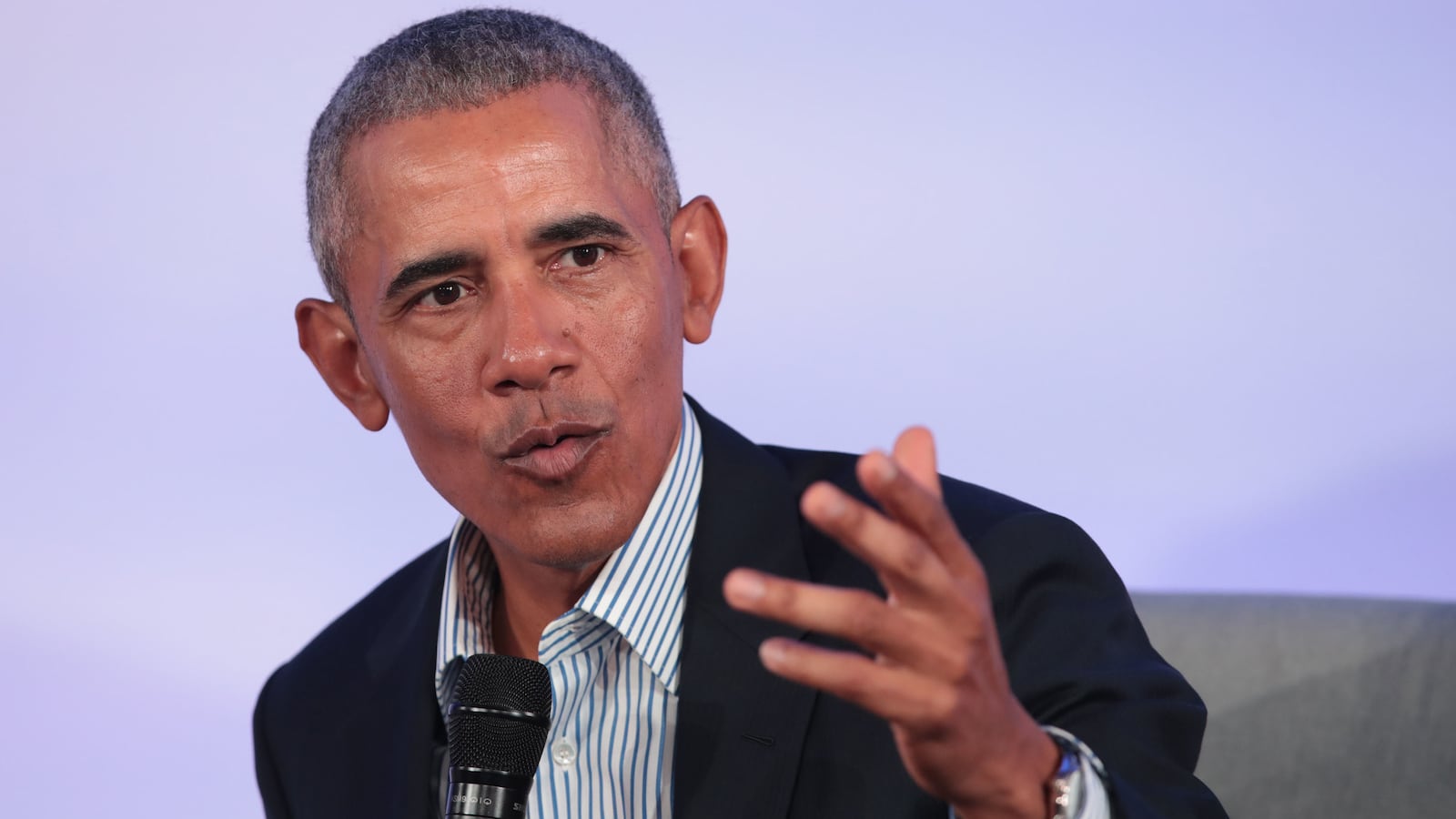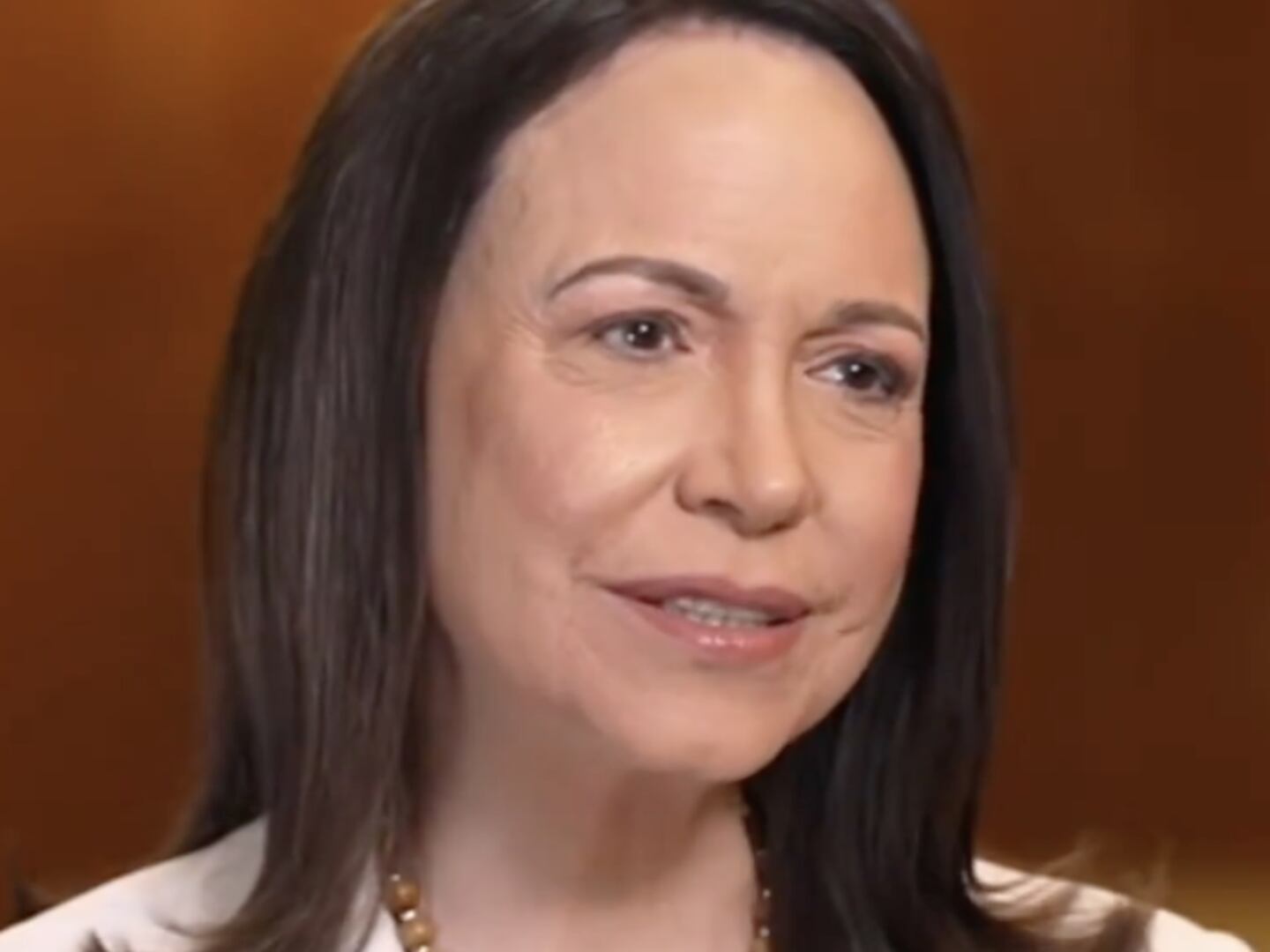Well, we’ve been waiting for Barack Obama to say something. And boy, did he say something! He was being interviewed at the Obama Foundation Summit yesterday, and from the edited clip that’s out, it’s hard to say exactly what the context was. He was being interviewed by a young woman, and the topic seems to have had something to do with youth activism. Anyway, here’s what he said, in full, with just a few little edits of asides like his mention of Malia:
“This idea of purity and you’re never compromised and you’re always politically woke and all that stuff… You should get over that quickly. The world is messy. There are ambiguities. People who do really good stuff have flaws. People who you are fighting may love their kids and share certain things with you.
“One danger I see among young people particular on college campuses is a sense… [that] the way of me making change is to be as judgmental as possible about other people, and that’s enough. If I tweet or hashtag about how you didn’t do something right or used the wrong verb, then I can sit back and feel pretty good about myself, cuz, ‘Man, you see how woke I was, I called you out.’ Get on TV. Watch my show. Watch Grown-ish.
“That’s not activism. That’s not bringing about change. If all you’re doing is casting stones, you’re probably not going to get that far. That’s easy to do.”
Okay. I’m old. Ish. I’m not an expert on call-out culture and am not going to pretend to be. I am however reasonably knowledgeable about politics and the Democratic Party, and there are some obvious implications of Obama’s comments in those realms, so I’ll limit my thoughts to those matters.
I’ve written this before, and I’ll keep writing it: I have never in my adult lifetime seen such a yawning chasm between the Democratic Party’s activist base and its rank and file. I suppose it was probably like this or maybe even bigger in 1972, the year of McGovern, but that wasn’t my adult lifetime. If you live in one of a handful of urban neighborhoods and spend your days on Twitter and read certain websites and magazines, you might be forgiven for thinking that the left’s moment has arrived.
But leave those enclaves and jump off Twitter for a few days and it’s a pretty different story. Not only is most of America not woke. Most of the Democratic Party isn’t woke.
What and who is the Democratic Party? It’s this:
1. It’s not an overly liberal party. I’ve cited these numbers before, from the 2017 Pew Typology Survey, which I wrote about here. Just 47 percent of Democrats called themselves liberal or very liberal (16 percent say very liberal). Another 37 percent say moderate and 15 percent say conservative. This is in line with other surveys, where about half of Democrats call themselves liberal.
2. It’s still a working-class party. People with a high-school education or less are 37 percent of the party; some college, 29 percent. College grads are 18 percent and people with post-graduate degrees are 15 percent. In racial terms, the party is just more than half white, about 20 percent each African American and Latino, and the rest Asian and other.
3. In income terms, under $30,000 is 36 percent. Up to $50,000 adds another 17 percent. Above $100,000 is just 25 percent.
4. Finally, from a Gallup survey last November: Democrats were asked if they want their party to be more liberal or more moderate. More moderate prevailed by 54 to 41 percent.
That’s the Democratic Party. I don’t report these numbers to you with joy, by the way. I’d like to see the Democrats be more liberal. Not on Medicare for All, about which I have some serious political reservations, but on more or less everything else: taxes, wages, inequality, climate change, and so on. But this how it is.
It’s not the rank and file, though, that’s driving the primary campaign. It’s the activist base. You might say so what, this is true in every presidential election. And that’s right.
But as I said, the gap between the two is bigger than before. And it feels different now. It feels angrier. Maybe that’s just because Twitter is a medium that encourages people to behave like raging assholes, and the anger isn’t really as great as it appears to be. I hope that’s the case. But there’s good reason to worry it isn’t, and this could produce some pretty grim scenarios down the road.
Let’s say Elizabeth Warren wins the nomination. And let’s say that once she does so, she starts to moderate a couple of her views. Even just around the edges.
In previous elections, the activist base would let this happen. They knew the game. They may not have liked the game, but they knew it and had a certain grudging respect for the need to play it.
Would the 2020 activist base let Warren sidle toward the center? From the evidence I’ve seen so far, I’d say the answer is no.
I’ve been thinking a lot lately about how Mitt Romney performed in that first debate in 2012. Remember? He took all these moderate-sounding positions, on immigration, civil rights, a whole bunch of things. My friends and I were tearing our hair out. How can he get away with this? After all those months of severe conservatism and self-deportation and all the rest of it, now suddenly he sounds like—well, his father back in 1967? How dare he!
And on the right—did they get mad at him? Did they scream apostasy? Denounce him as a sell-out and stooge for socialism that they always knew him to be? No. They saw us liberals tearing our hair out and they went: Good for you, Mitt! Keep trolling the libs. We’ll keep our mouths shut til after Election Day.
It didn’t end up working. Obama woke up from the nap he was taking during that first debate and campaigned hard and won. But it brought Romney closer than he’d ever been.
Today’s left would not give Warren that space. Would not let her troll the cons so hard. This, I think, is what Obama was talking about. Life is messy. There are ambiguities. Voters on the right accepted about three million of them in 2016 to keep Hillary out of the White House. They kept their eyes on the prize. I hope voters on the left can do the same.






